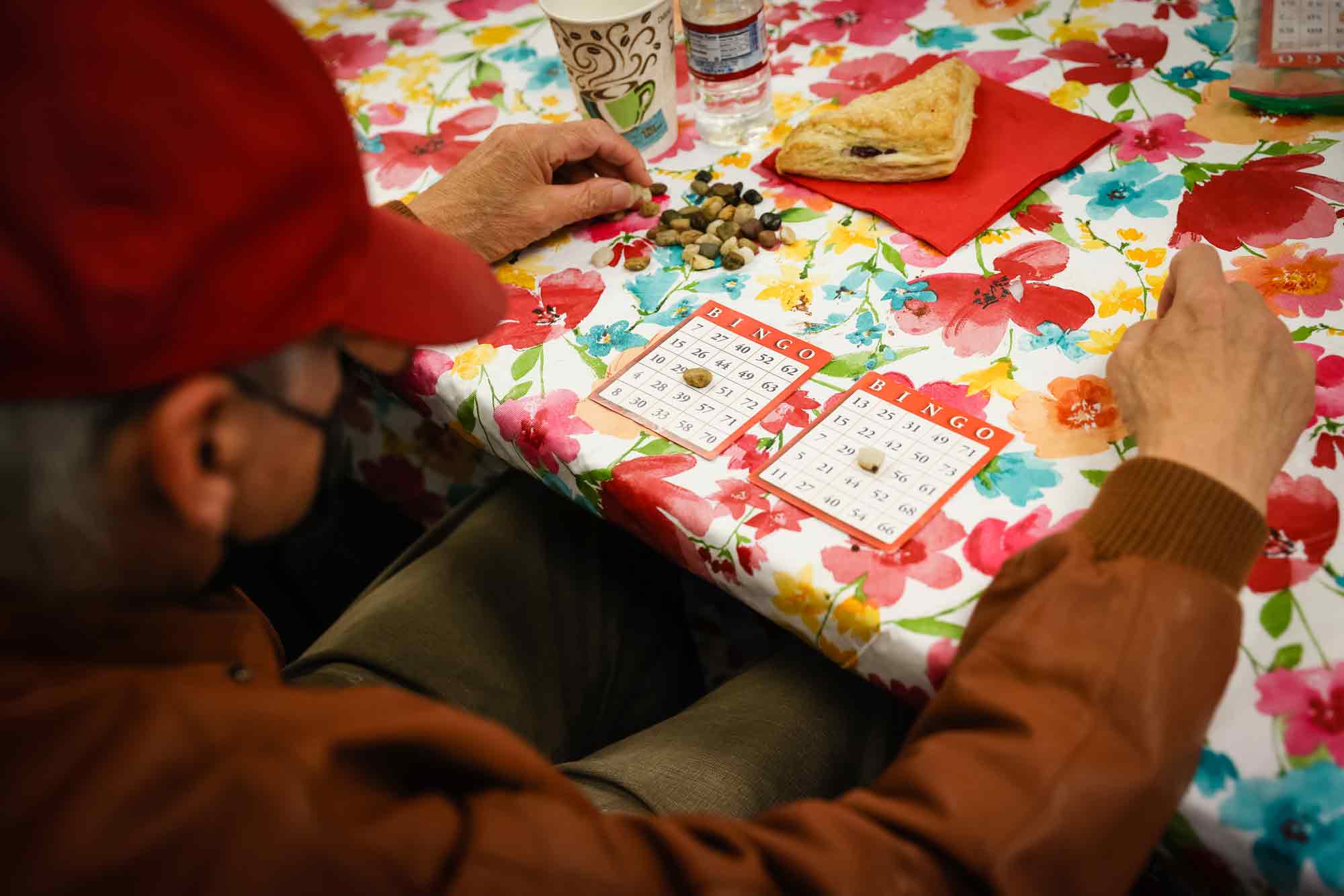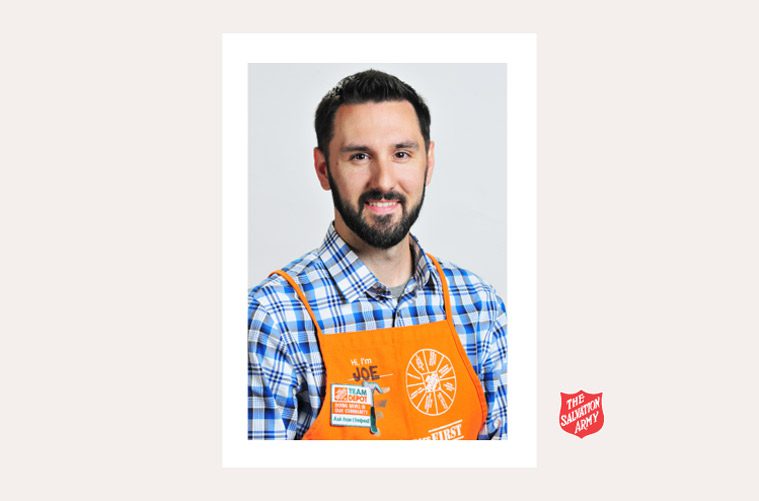Have you ever dreaded a conversation?
Maybe you hit a difficult topic or needed to address a sticky issue, but you knew it would be a tough one.
Chances are it’ll happen again, so go ahead and bookmark this episode now.
Kathy Lovin is the Public Affairs and Communications Manager for The Salvation Army in the western U.S. She’s spent more than two decades coaching people on how to address difficult topics with the media, employees, boards, and even family members.
Tough Talk, as she calls it, is a discipline we all need and one we can all grow in.
She’s on the show to share what she’s learned over the years and to offer six tips for being a more effective, purposeful communicator.
As she says, it all comes down to caring for people.
Show highlights include:
- More of Kathy’s story.
- What she does as the Public Affairs and Communications Manager for The Salvation Army in the West.
- How she has seen communications change throughout her career.
- Why conversation is so fractured today.
- The biggest misconception around communicating in hard situations.
- The makings of a clear, purposeful, thoughtful communicator.
- What led Kathy to start sharing Tough Talk tips online.
- More on the first six tips, from starting the conversation to not waiting to define reality.
- An example of a sticky issue made better by some Tough Talk.
- How to start today to be a more thoughtful communicator.
Listen and subscribe to the Do Gooders Podcast now. Below is a transcript of the episode, edited for readability. For more information on the people and ideas in the episode, see the links at the bottom of this post.
* * *
Christin Thieme: Kathy, welcome to The Do Gooders Podcast and in the studio, this is very fun to have you right here sitting with me.
Kathy Lovin: I agree. This is so fun. Almost back to normal.
Christin Thieme: Yeah, exactly. Can you give us a little picture of who you are, what your story is, some of the highlights of what brings you here today?
Kathy Lovin: Sure. I’ve been at The Salvation Army for about 23 years. It’ll be, yeah, 23 years in May.
Christin Thieme: Adds up.
Kathy Lovin: It sure does. Really. And it goes fast.
Christin Thieme: Yeah.
Kathy Lovin: Strangely. But I have always been a word nerd and a big reader and truth seeker and I’m a creative, in fact, my degree is in design, so I’m kind of a creative. So, I think that it’s just so interesting that, at this stage in my life, or at least for the last 23 years, all of those things kind of came together to create really sort of a role that works for me, because strategic communications, we’re really talking about hard things and coaching other people to do the same, takes creativity, takes-
Christin Thieme: Lots of creativity.
Kathy Lovin: … lots of it, because I’m a problem solver. That’s another one of my favorite things is to be a problem solver. So, I think all of that really just works together very well to make me, to be honest, pretty good at this. And the experience has made me pretty good at it. I wasn’t born being able to do it. I had to pull from these different things that I’m good at and say, “Oh, I can see how these things go together here.”
Christin Thieme: Yeah. And you are very good at it.
Kathy Lovin: Thank you.
Christin Thieme: I can confirm. So, I guess that kind of leads us into what exactly do you do day-to-day? Your title is the public affairs and communications manager for The Salvation Army in the West. What does that mean?
Kathy Lovin: Okay. That really means that my job is to help people steer clear of landmines and other things.
Christin Thieme: Word landmines.
Kathy Lovin: Wordy landmines. Yeah. So, my role really is to train, support and coach people to talk about hard things and not just…I work in public relations. So, one thinks, “Oh, that just must mean the news media.” Not just the media, because we’ve got to be careful and thoughtful about what we say to everybody. So, that includes boards, that includes staff, of course, the news media and even a little bit of social media. We’ll get into that probably later, but that’s a big category and sort of bigger than any of us expected.
Christin Thieme: One of those additional responsibilities that wasn’t there at the beginning, right?
Kathy Lovin: It’s exactly right. Yeah. We dabbled in social media in this territory, The Salvation Army’s Western Territory, sort of early to kind of give shape to it and tell people, “Here’s what a blog should look like, and we’ve experimented with that. Here are what Facebook pages are capable of and we’ve experimented with it and want to teach you how to do it without embarrassing us.”
Christin Thieme: I guess, I mean, that’s a big area that has changed, but overall you’ve been involved in communications your whole career. How have you seen it change?
Kathy Lovin: Yeah. I could just go on and on about this, as you probably know. But I really think that for everyone, not just professional communicators, but for everyone, not just people like you and me, but the decentralization of our sources has probably been the biggest thing. The sheer number of media outlets and places where we can go to learn and find out more information has just become staggering. And the rise of self-publishing platforms and social media, which is basically self-publishing platform, kind of, has really given everyone an opportunity to be a communicator. And that’s mostly good, but not always good, obviously.
I think social media… And I have been involved on a national committee to talk about how we will guide people who use social media, who are in The Salvation Army or work for us, managing a branded Salvation Army page, is we really want to avoid having these difficult conversations that we probably need to have. But we don’t need to start them on social media. Sometimes we have to clarify them a little bit on social media, but we don’t want to start them on social media. Let’s keep social media social.
Christin Thieme: There’s your tagline.
Kathy Lovin: Right. Just let’s not tackle the hard things there. Sometimes we provide some clarity there, that’s okay. Sometimes we’ll answer questions about hard things there, you bet. But let’s not raise the issue there. Right? So, I think that’s what I would hope people also hear is that when I talk about having hard conversations, I don’t mean open up your Twitter and-
Christin Thieme: Fire away.
Kathy Lovin: … fire… Yeah, exactly. That’s not what I mean. Yes. Please don’t do that.
Christin Thieme: There’s a popular thought nowadays, that conversation is so fractured and divisive, and we hear this line a lot. Do you think that is due to the decentralization or people being so willing to put their thoughts out on social media? I mean, why is that?
Kathy Lovin: I think it’s a combination of all of that. I really do. I think it stems from what we just talked about, yeah, and what you just said. But I think that it goes further than that. I think, unfortunately, because of this decentralization of our information, we have our sources and we believe that we’re right. And what’s even more troubling to me is we aren’t just satisfied with being seen and heard, everyone sort of likes to say, “Oh, it’s important that people are seen and heard.” And I could not agree more.
But now we have so many people who think that it goes beyond that, “I have to be… My goal is agreement, and I have my sources and here’s what I want to say. And if you don’t agree with me, then it’s because I’m right and you’re wrong. And if you’re wrong, then I don’t want to hear what you have to say, or I will even do what I can to keep you from being able to say it in the future.” I mean, that is not healthy. It’s not healthy for Christians, for sure. And it’s not sustainable. That’s a problem. So, I’m a little worried that the state of our discourse has become fractured because we just believe that the goal is winning people to our side and being in agreement when really the conversation is the goal.
Christin Thieme: Right.
Kathy Lovin: Right?
Christin Thieme: And like you said, it doesn’t have to be on social media. Let’s have the conversation.
Kathy Lovin: Right. Let’s avoid having some of those harder ones on… Let’s stand by the water cooler and have the conversation if you want to just get a reaction, don’t do it on social media. I don’t even think people listening know what a water cooler is anymore, but you know what I mean? That used to be the joke like, “Oh, the water cooler conversation.” Boy, I wish that we were only having water cooler conversations sometimes.
Christin Thieme: Right. Yes.
Kathy Lovin: Yeah, exactly.
Christin Thieme: So, you’ve mentioned some of these hard situations and having these difficult conversations, what do you think the biggest misconception is around the need for these conversations and, just in general, having them, what makes it so difficult?
Kathy Lovin: Yeah. I think most people are non-confrontational, I think we don’t really want to have a conversation if it’s not going to be easy or if it’s not going to end well. I still think conversations are important to have, even if they don’t resolve in a way you want it to resolve. But I think one of the biggest misconceptions is that, “Oh, well, if we don’t talk about it, it’ll go away. If we don’t give it oxygen.”
Christin Thieme: If only.
Kathy Lovin: Yeah. If only. And that really is just not how it works. And I really think, as people of faith, Christians, we have to be willing to talk about the hard things with grace and with truth. And we have to be willing to do it even if it doesn’t come out in the end with a win. We have to be willing to do it anyway. We have to be willing to do it anyway. I really think it’s an essential discipline. And I think it’s something we have to learn how to do and we have to practice it, how to have those hard conversations and not just pray that it goes away miraculously. Because that’s just it’s not going to do it.
Christin Thieme: I think that’s an important point too, that it is a discipline, and it is a skill, it’s something that you have to learn and get better at and be willing to engage in intentionally.
Kathy Lovin: Yeah. And you do that by practicing.
Christin Thieme: Yeah. So, you have some tips that we’re going to get to in a second, but I’m wondering, just broadly, what would you say makes for a clear, thoughtful communicator?
Kathy Lovin: I really think that somebody has to be committed to the truth. And when I say truth, I mean the essentials that are safe and proper to share. I mean, there are things that don’t help a conversation that you don’t have to say. But I think you want to know what’s truthful and what’s helpful together, truthful and helpful. And I think you have to have a good attitude. I think I’ve seen a lot of communicators who go into a conversation looking for the win. So, they have an attitude that maybe is off-putting or it doesn’t lend to back and forth conversation.
And I think you have to know in advance what you want to say. Again, that’s a discipline. I don’t really start, I mean, even if I’m just talking to somebody in my family or one of my friends and I know, yeah, I’m probably going to want to get into this topic. And I’ll have notes on my computer before I dial the phone just because I want to say what I mean to say. And it is a discipline. So, I think those things go into it. I think those are the main things.
Christin Thieme: Yeah. It doesn’t have to be on the fly. Right?
Kathy Lovin: No.
Christin Thieme: I can think through this.
Kathy Lovin: No, but the thing is the better you get at it, the better and more quickly you can come up with responses. But of course we never recommend that anybody has a hard conversation on the fly. Think about it. Go through the tips. Go through the tips that I’m going to share.
Christin Thieme: Yes. So, you, as part of your role, have long coached people on how to have these hard conversations. And then, lately, you started sharing them on online, your advice for communicating effectively when the going gets tough. I love that. You’re calling it Tough Talk-
Kathy Lovin: Tough Talk.
Christin Thieme: … which is fun. So, what led you to start sharing these tips online?
Kathy Lovin: The last couple of years have been pretty isolating and anxiety-producing for a lot of people. I’m an extrovert. So, it really kind of affected me in that way. But not in any great, not any great, big, bad way, but it was kind of hard to be honest.
Christin Thieme: Yeah. It was a lot.
Kathy Lovin: And I think that the state of our discourse, when you add those two things together and maybe a few other things, the decentralization of our sources and all that, all of it kind of just seemed to make things a bit worse from my perspective. Right?
If all you can do is have Zoom meetings instead of face-to-face conversations with people, I mean, it’s limiting, it was a great blessing to have that technology, but it was still limiting. So, I thought, “Maybe now’s the time to start talking about these things.” And also I didn’t want to forget them either. You know?
Christin Thieme: Yeah.
Kathy Lovin: I’ve been working on these for a long time and I always pop out with them when I’m training people or coaching people. But I thought, “I should really get these down somewhere. I should remember these. I should put these somewhere where we can always refer to them,” or somebody who’s going to have a tough talk with somebody later today and thinks, “I want to refresh my memory on what I should do to make sure this goes pretty well, it goes as well as it can.” So, that’s really it.
I think we should all be brave and we should address hard topics. But I think another thing, another reason I did it is because I really think that, if anyone, Christians should kind of lead the way on this, to be truthful, be purposeful, be grace-filled. We should be willing to do it. So, that’s sort of why. We’re all in an organization, whether it’s at work or even a family is an organization, a church, a club. So, there are going to be things that come up. So, we should all try and get good at this.
Christin Thieme: Yeah, absolutely. And that’s an important point too, that this applies professionally just as much as it does personally.
Kathy Lovin: Oh yeah. You bet.
Christin Thieme: So, I’m wondering if we can just make this a little mini-workshop then.
Kathy Lovin: Sure. Sure.
Christin Thieme: And go through these tips that you’ve offered just briefly and we’ll direct people to the full rundown of them online. But just as a quick overview for us of each of these six tips, starting with number one, you say, “Start the conversation.” Can you share more?
Kathy Lovin: Yeah. In addition to the truism we’ve already covered about how it’s just not going to go away, you don’t just sweep it under the rug and everyone’s going to stop talking about it. Thoughtful and reasonable people should be at the very least willing to offer an explanation for something that people are talking about. It’s the right thing to do. It’s not going to go away. It’s actually the reasonable and appropriate thing to do is to actually say, “You know what, I’ll have this conversation, even though it will be taxing, I’m going to have it.”
It’s important. It’s important to do just because it’s right.
Christin Thieme: Probably make you feel better too in the long run.
Kathy Lovin: Well, yeah, exactly, exactly. Get into it a little bit. Yeah. Good point.
Christin Thieme: All right. So start it. Number two, what problem do you need to solve?
Kathy Lovin: Oh yeah. I think this is one of my favorite tips and when I’m coaching people and we’re looking at a scenario and we’re going to talk about, what are you going to say? The best way to frame it, I think, is to say what problem do you need to solve? What problem do you need to solve? People are now concerned that they’re supporting an organization that has lost its focus or has made a mistake or has overlooked an important… You know what I mean? Whatever that thing is, find it and then message to that. Once you’ve decided to have the conversation, you’ve got to know why you’re going to have it and what problem you need to solve. And then, everything flows out of that.
Christin Thieme: Yeah. They say anger is a secondary emotion, right? So, if there’s anger involved, what’s the core problem?
Kathy Lovin: What the core? Yeah. What is it people want to know? What do you have to solve?
Christin Thieme: That’s an important question.
Kathy Lovin: Yep.
Christin Thieme: Number three. Say as much as you can up front. What do you mean by that?
Kathy Lovin: Yeah. I think a hard conversation is hard. That’s a little obvious.
Christin Thieme: That’s why we have Tough Talk.
Kathy Lovin: Yeah, exactly. So, don’t have more of these conversations than you need to. Have the conversation in a way that you can address as much of it as you can address in that first exchange. Get it behind you. Get that difficult stuff behind you. Move on. Turn the page. And I think this is just even more important when you’re talking about having a difficult conversation with a reporter. If a reporter calls you and says, “Hey, I understand that something’s going on over there. And I want to talk about it with you.” You want to give them as much as you and your legal team and your personnel department and your HR folks and your risk management folks, of course, you have to have a collaborative effort. And figure out what’s as much as we can possibly say now that’s truthful and helpful? Say it now. Because the last thing you want is a follow-up story in three days. “Oh, well, you forgot to mention this and now we have people calling the station saying, ‘But you didn’t ask them about this.'”
Christin Thieme: Yeah. Get the truth out there.
Kathy Lovin: Yeah. Get it out there and get that story arc, get it all done hopefully in one news cycle.
Christin Thieme: If you can.
Kathy Lovin: There you go.
Christin Thieme: If you can. That’s right. So, kind of on the heels of that, number four is leave out the unhelpful parts.
Kathy Lovin: Oh yeah. And you know what’s funny is when I posted this tip, I heard from a couple of folks who said this is the thing they struggle with the most.
Christin Thieme: Hmm. Interesting.
Kathy Lovin: Because a tough talk, it’s stressful. So, what do we do when we’re stressed?
Christin Thieme: Start talking.
Kathy Lovin: Exactly. I’m slapping my little fingers together, making a little universal sign for talking.
Christin Thieme: Yeah.
Kathy Lovin: People start talking and they say too much. So, I think there are simply things that are not helpful to say, and it’s not because they’re truthful and we don’t want people to know or whatever. That’s not it. It’s just there are things that are distracting and unhelpful. So, don’t say them. And my example that I give when I wrote a little bit more in depth about the is a favorite example. And I really think it illustrates this. And it goes back to the ’90s, when President Bill Clinton was spending the weekend in Florida at the home of golfer Greg Norman. And he injured his knee during the course of the weekend. And of course, the White House press office-
Christin Thieme: News breaking.
Kathy Lovin: News breaking.
Christin Thieme: It is.
Kathy Lovin: I mean, because he’s going to show up with crutches or a brace or something and people are going to want to know what happened. So, they explain what happened, and the very last line of the news release says, “Alcohol was not a factor in the accident.”
Christin Thieme: Which brings up all kinds of questions.
Kathy Lovin: It does. It just raises questions. It’s truthful. Great. But how did somebody like me do, who’s a communications word nerd? I said, “Oh they were drinking. That’s why they said it.”
Christin Thieme: Yeah.
Kathy Lovin: “Oh, I see.” And that’s not what you want from a successful tough talk. You don’t want to raise more questions. You don’t want to distract people, because honestly I’m sure there was other really great stuff said in that news release. I don’t remember any of it. I remember that last line.
Christin Thieme: The red flag.
Kathy Lovin: The red flag. And that’s not what you want. So, yeah, just share what you need to share that solves the problem and then stop talking.
Christin Thieme: Actually, one of the tips from journalism school, they say to embrace those pauses, those long pauses, to let it ride, because almost always people will start talking. They feel nervous and will just start talking and offer more information.
Kathy Lovin: Exactly. And that is going to be a future tip, because that is… I mean, it’s a strategy for a pastor who’s doing marital counseling, right?
Christin Thieme: Yeah.
Kathy Lovin: It’s a strategy for everyone.
Christin Thieme: It’s human nature. You want to fill the gap.
Kathy Lovin: Yes. Stop talking and see what the person you’re talking to volunteers.
Christin Thieme: Yeah. Number five then, ditch the buzzwords, the industry jargon and the insider language.
Kathy Lovin: Yeah. This is all about inclusivity for me. I think we don’t want to use exclusive language. We don’t want to keep anyone from understanding what we’re talking about. I think it’s just a kindness. But I think it’s also just a comfort level people will have with the language of their trade or their field. And The Salvation Army, everybody’s probably kind of like us in that they have some industry insider language or the many, many acronyms.
Christin Thieme: I was going to say not as many acronyms as us, but.
Kathy Lovin: No, I think we probably are the Guinness book record holders on acronyms.
Christin Thieme: Yeah, definitely.
Kathy Lovin: But we all have sorts of insider lingo. And if we want to be understood, we can’t use those words, because you know what happens when people use those words? When somebody says, “well, I am a Salvation Army leader at the local corps.” The word corps is, C-O-R-P-S, something we totally understand. But somebody on the outside of The Salvation Army, they’ve become distracted, because they’re wondering what corps is. And then what happens to the rest of it…It’s gone.
You’ve literally distracted somebody with an unfamiliar term or an acronym and you’ve lost them. So, their brains are busy trying to work out the meaning of that word. So, the rest of that tough talk is lost. So, that’s why we don’t want to use them, because they’re distracting. But mostly because they’re not inclusive.
Christin Thieme: Yeah. You want to keep your message clear.
Kathy Lovin: Yep.
Christin Thieme: And then number six, don’t wait to define reality.
Kathy Lovin: Yeah. This one’s a repeat of that first tip, have the conversation. But I also want to remind people and this one is just because you’re not talking about it doesn’t mean that other people aren’t talking about it because-
Christin Thieme: So true.
Kathy Lovin: … they are, they’re talking about it. So, get into the conversation and make sure people hear the truth. Clarify it, get in there. Right?
Christin Thieme: Not even just the media. I mean you’re talking internally. That’s an important point.
Kathy Lovin: Anybody. Oh yeah. Anybody even in a family. If there are people in the family that have a disagreement with each other, but nobody wants to bring it up, believe me, everyone’s going to know at Christmastime when you all get together, even if you don’t address it.
Christin Thieme: Yep. So, these are six practical tips that we can start using today. Thank you for those.
Kathy Lovin: Yes.
Christin Thieme: Can you share an example of a sticky issue that has been made better by some tough talk?
Kathy Lovin: Yeah. There are just a lot of those. I got to tell you. It’s mostly because we’ve got a lot of people working to apply those principles that we just talked about and more, because I’m going to continue to write more. But I don’t think there’s anything that isn’t made better, in a sense, by some tough talk. Because the thing to remember is that it’s not going to solve everything, we don’t have magic words that make everything go away. The idea is we’re having the tough talk to show people that we care about the subject, not just because we can solve it with our words. Because sometimes we really can’t solve it with our words, but we should at least try. And this is a topic that’s going to come up later. I don’t know what number it is, but it’s down the line, like number nine or 10.
Christin Thieme: More to come.
Kathy Lovin: More to come. But we have the conversation. We engage in the tough talk, because when we do that, people are more likely to give us the benefit of the doubt because we tried. So, if somebody looks at you and says, “Oh look, that’s really brave that you’ve decided to try and resolve this.” I’m not sure if these words you’re going to work for me, but you’re trying. It may not-
Christin Thieme: Yeah. Exactly. It shows that you care.
Kathy Lovin: It shows that you care. It may not solve the issue completely. But it’s a start and it does allow you to get the benefit of the doubt with at least some people.
Christin Thieme: Yeah.
Kathy Lovin: Right? So, we’ll talk…I mean, I’ll write about that. I don’t know if we’ll talk about that, but we’ll write about that. I’ll write about that.
Christin Thieme: Perfect. We will keep an eye for that one.
Kathy Lovin: Yeah.
Christin Thieme: So, you’ve given us all these tips. What would be your best encouragement or advice for somebody who maybe is listening and who needs to have a hard conversation or just wants to be more thoughtful in their communication? What’s your best advice or encouragement?
Kathy Lovin: Oh boy. I think, we really have to start at the beginning and just…I understand that communicating about something difficult may not be easy. I mean it’s rarely easy. And if it’s easy for you, maybe you’ve just done it so much and it’s a discipline for you or maybe you’re just weird. I’m sorry, If you want to talk about hard things a lot and you love it-
Christin Thieme: Yeah. That’s not normal.
Kathy Lovin: That’s perhaps not normal. It’s certainly not a bad thing. But you’re an outlier.
Christin Thieme: Yeah.
Kathy Lovin: Yeah. You’re an outlier. But you may not get the results you want, but it’s still just the right thing to do. It’s the right thing to do. And if we are, especially those of us who are Christians, if we are trying to be salt and light, and bring truth into situations that are confused, then we have to try and do this. This is important to do. And we need to do it with purpose. And we need to understand what the goal is. And the goal isn’t necessarily agreement or necessarily a solution that works for everybody. The goal really is to care about people and to talk about something they’re already talking about.
Christin Thieme: Yeah.
Kathy Lovin: That’s really the goal. That’s the end goal. And solving that problem, if we can, that’s the thing we want to solve, problems for people. I mean, that’s what The Salvation Army exists to do, to serve suffering humanity. We’re helping people solve problems.
Christin Thieme: Yeah. So true.
Kathy Lovin: So, I think that’s really where we start.
Christin Thieme: Yeah. Comes back to care for people.
Kathy Lovin: Yeah. Care for people. This is how we care for people.
Christin Thieme: Love it. Well, Kathy, thank you so much for joining in and we will keep watching for additional tips down the line.
Kathy Lovin: You’re so welcome. Oh, I’m so excited. Thank you for having me.
Additional resources:
- See Kathy Lovin’s series Tough Talk for tips on having hard conversations.
- Get on the list for Good Words from the Good Word and get a boost of inspiration in 1 minute a day with a daily affirmation from Scripture list this sent straight to your inbox. It’s an email to help you start your day with goodness.
- You’ve probably seen the red kettles and thrift stores, and while we’re rightfully well known for both…The Salvation Army is so much more than red kettles and thrift stores. So who are we? What do we do? Where? Right this way for Salvation Army 101.
Listen and subscribe to the Do Gooders Podcast now.

















